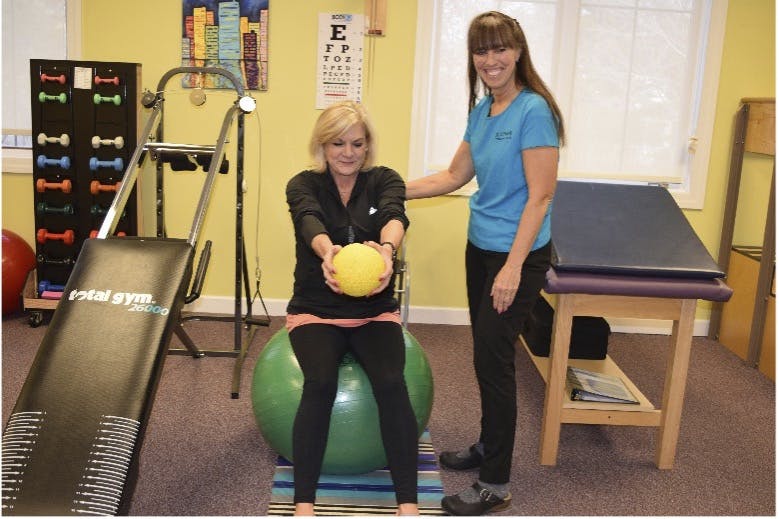
January is a perfect time to start a new fitness journey or enhance your current routine. Embrace the New Year's energy to be motivated, inspired, and consistent. Exercise improves mental function, reduces your risk for chronic disease, enhances sleep, maintains good energy levels, and supports a healthy weight. Common types of exercise include aerobic, strength training, high-intensity interval training, flexibility, and stability, which ideally can be combined for well rounded health. Set yourself up for success by following our tips to get started.
Check Your Health
Consult with a healthcare provider before starting a fitness regime. A check up can detect any health issues that would put you at risk for an injury during exercise. If struggling with an old injury, contact 1st Choice Physical Therapy for a screening or evaluation to get you on track during your new fitness journey.
Start Slowly
If you've never exercised before or have been sedentary for a long time, it's advisable to start off slowly and gradually build up activity levels. Instead of 30 minutes of walking 5 days a week, for example, start with 5 or 10 minutes and build from there.
Any Exercise is Better than No Exercise
The key thing to remember about starting an exercise program is that something is always better than nothing. Going for a quick walk is better than sitting on the couch. The current recommendation for most adults is to perform at least 150 minutes of moderate activity per week. You'll get there by exercising for 30 minutes, 5 times a week, but as stated before, start slowly.
Warm up before
Warm up with dynamic stretches—active movements that warm and move the muscles you'll be using, such as leg kicks, walking lunges, or arm swings. You can also warm up by performing slower, easier versions of the upcoming exercise. For example, if you're going to run, warm up by walking. If you're lifting weights, begin with a few light reps or start with sports cord exercises.
Cool Down
After any workout, it's important to take a few minutes to cool down and allow your heart rate to return to its resting rate. A walk after a run, for example, or some gentle stretches after strength exercises can also help prevent soreness and injuries. After an activity is the best time to perform static (longer hold) stretches to gain flexibility as your warm muscles will stretch more effectively.
Drink Plenty of Water
Your body performs best when it's properly hydrated. Failing to drink enough water when you are exerting yourself over a prolonged period of time, especially in hot conditions, can be dangerous. Aim to drink 11 cups of water for women and 15 cups for men, but this will vary depending on your size, weather, amount of activity, and health issues.
Listen to Your Body
If you feel pain or discomfort while working out, stop! If you feel better after a brief rest, you can slowly and gently resume your workout. Don't try to power through pain. Give the therapists at 1st Choice a call for an assessment if discomfort during exercise persists.
Call us for a screening or evaluation if you run into any physical obstacles during your exercise journey. We at 1st Choice Physical Therapy wish you health and happiness as you begin your fitness plan in 2024!
